Pick a place. Stay there.
Wandering through an art gallery this winter, I came across a work called Towards an Encyclopedia of Local Knowledge. Artist Pam Hall spent years compiling local know-how into an illustrated encyclopedia to be passed on and shared externally. Being in Newfoundland, she discovered gems like how to knit fishing nets, butcher and use a whole moose, and pick potato varieties.
I took some pictures. The whole work is available for download at the above link. To me, the value of perusing this is the provocation to make one's own internal tally of their local know-how and knowledge keepers.
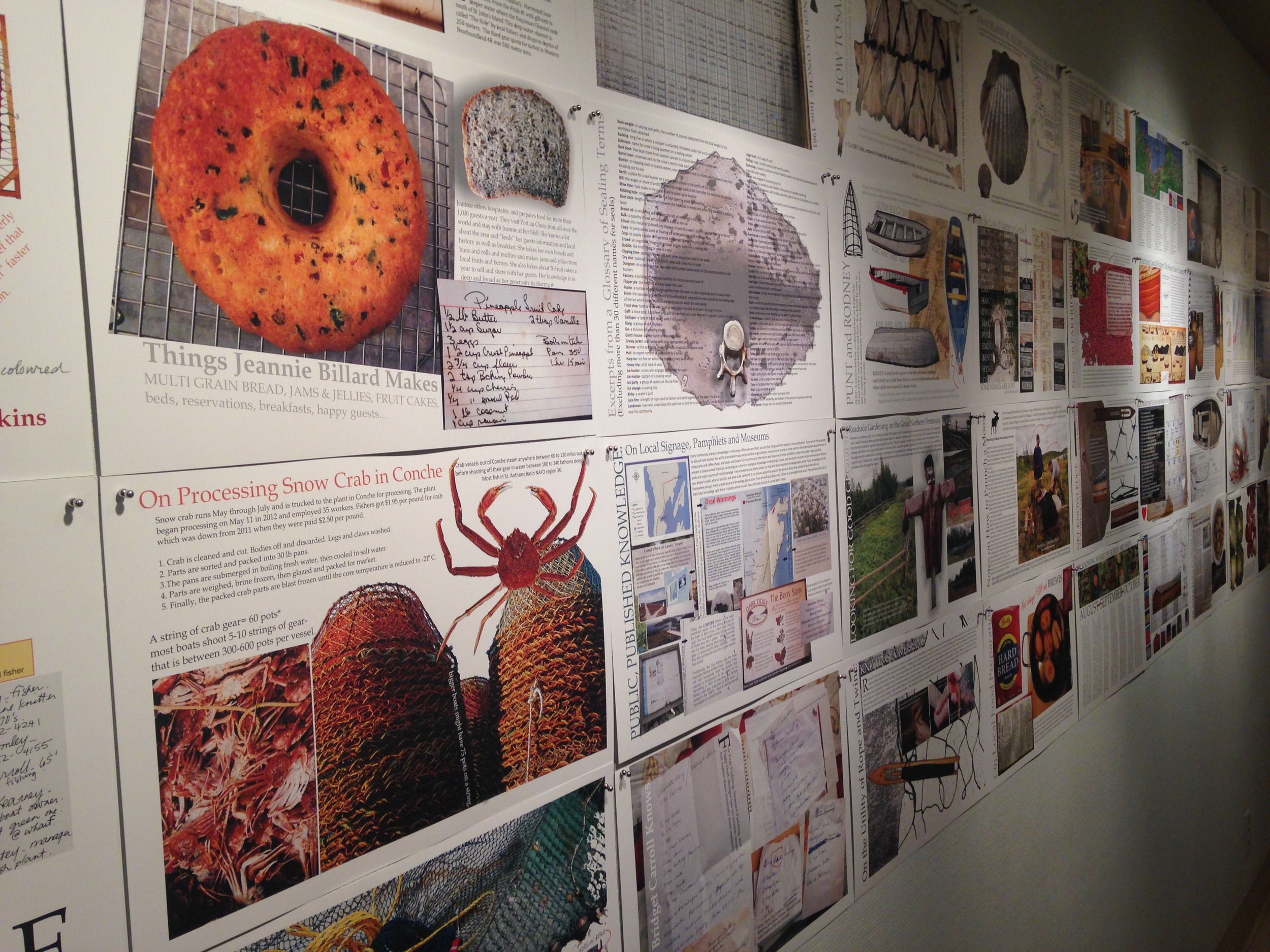
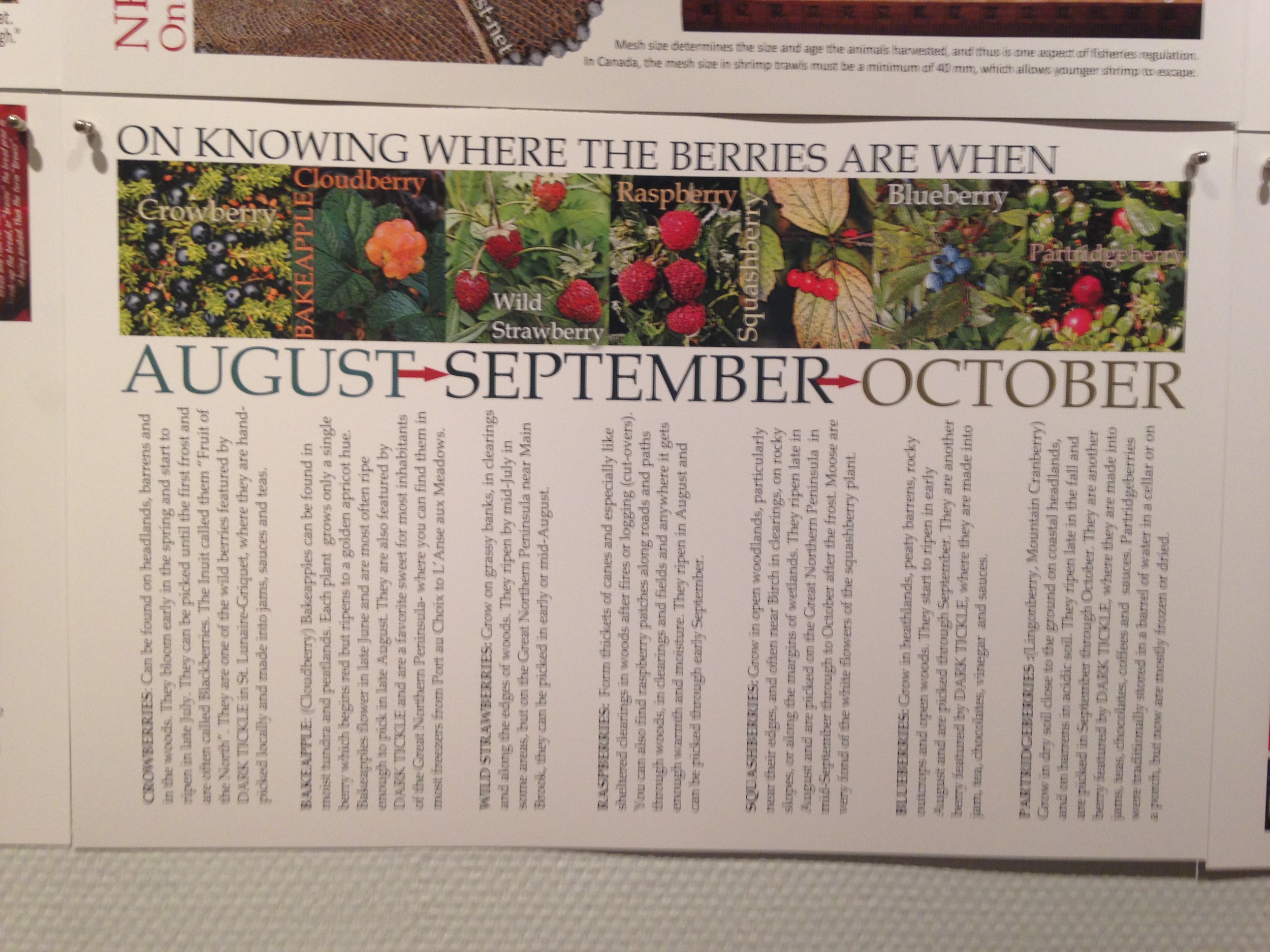
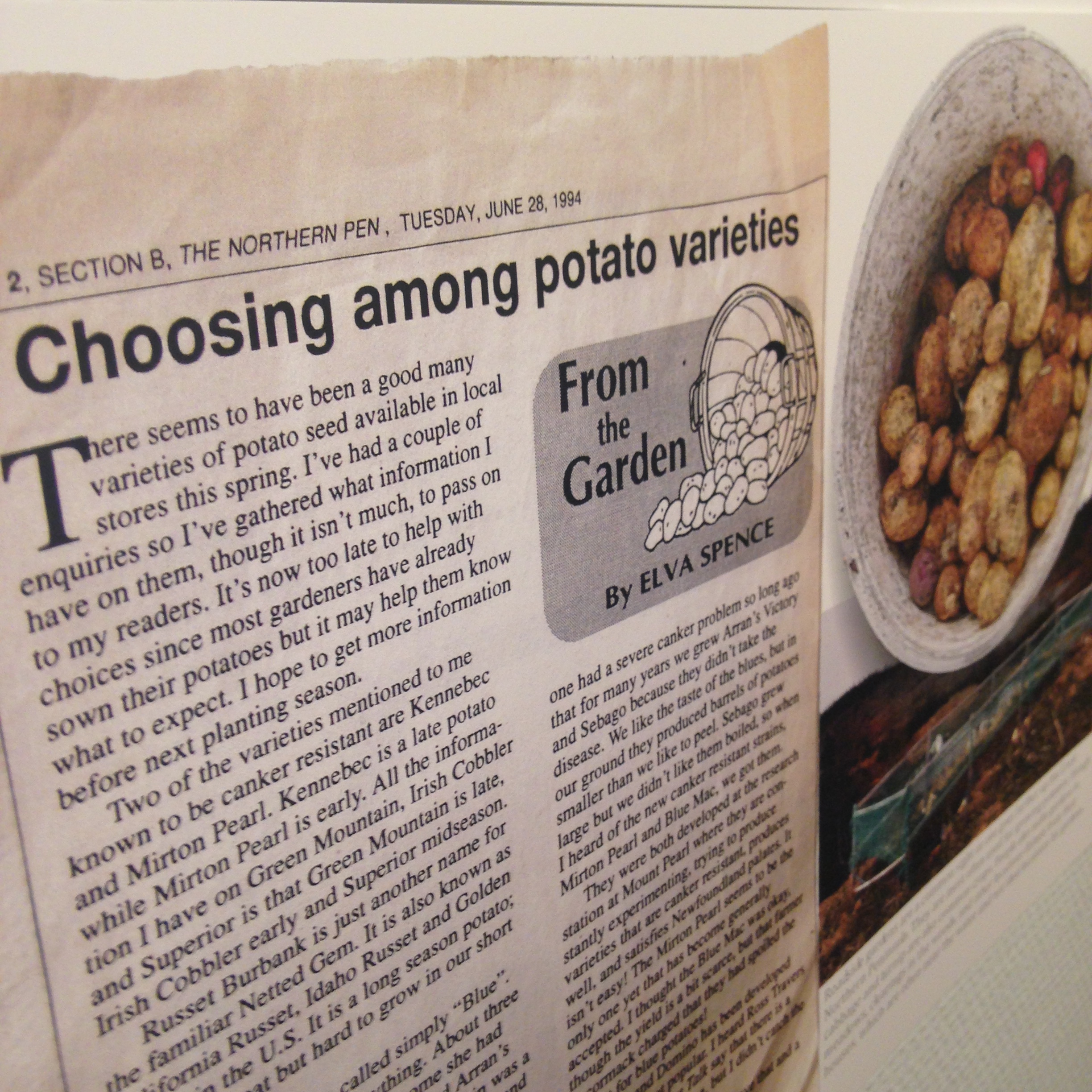
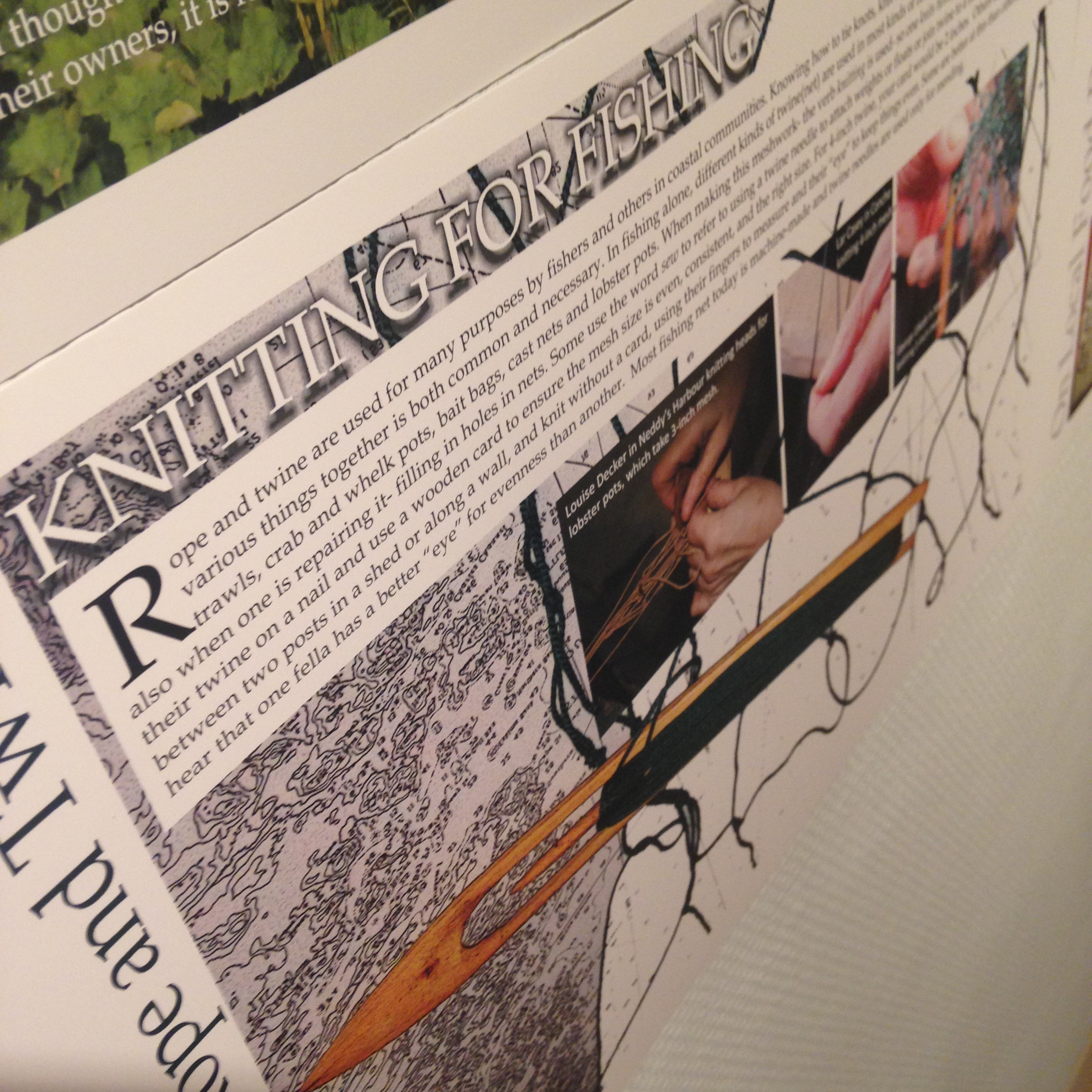
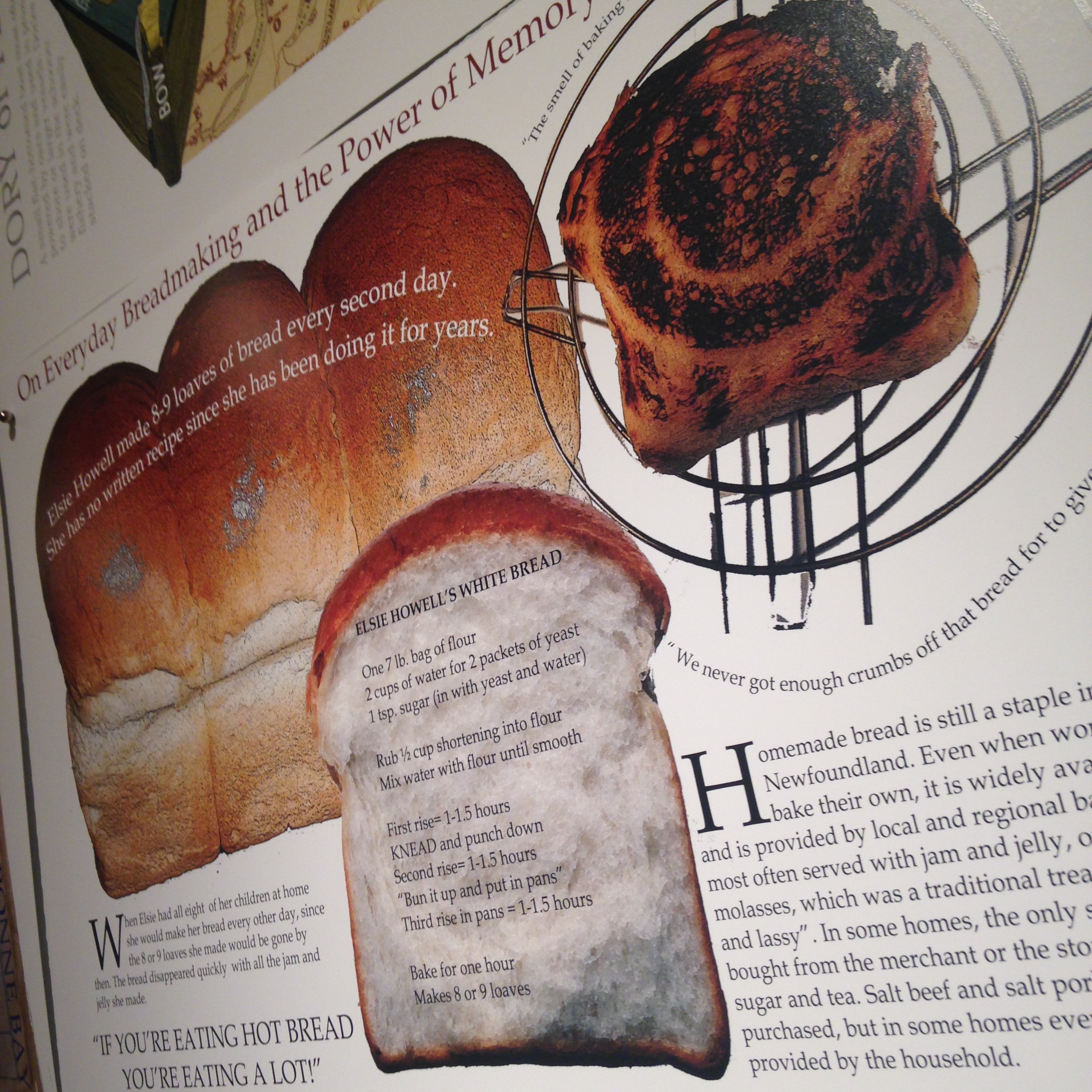
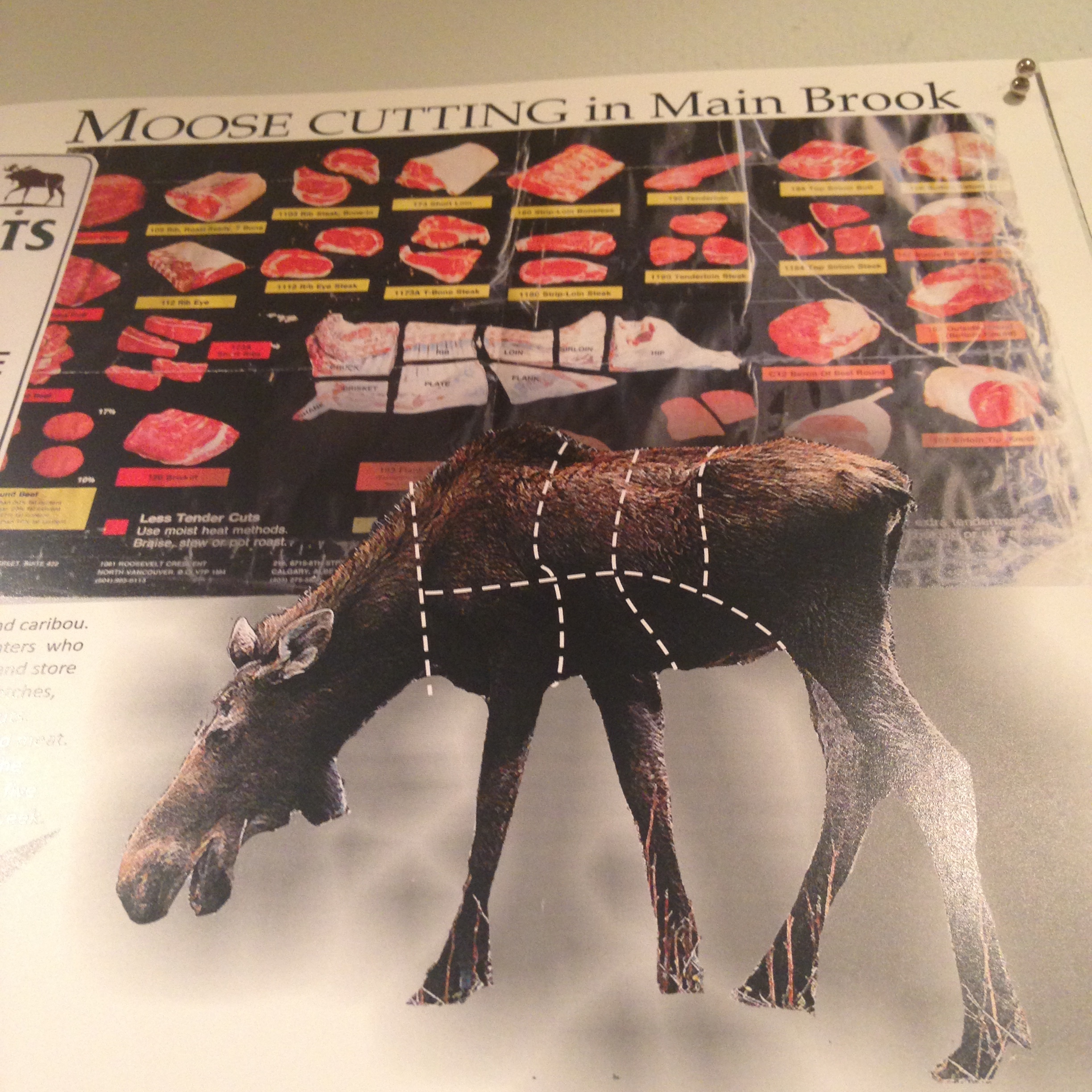
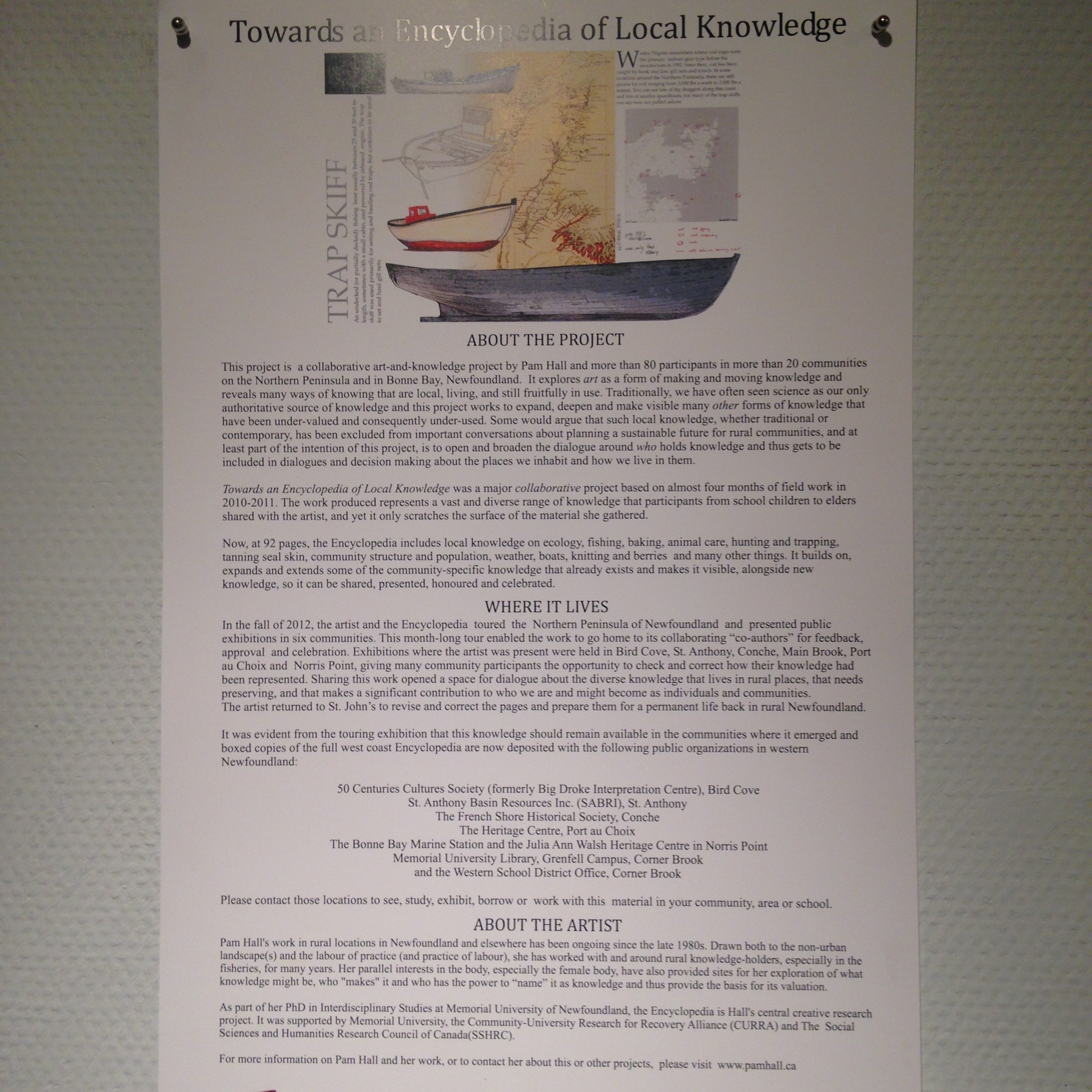
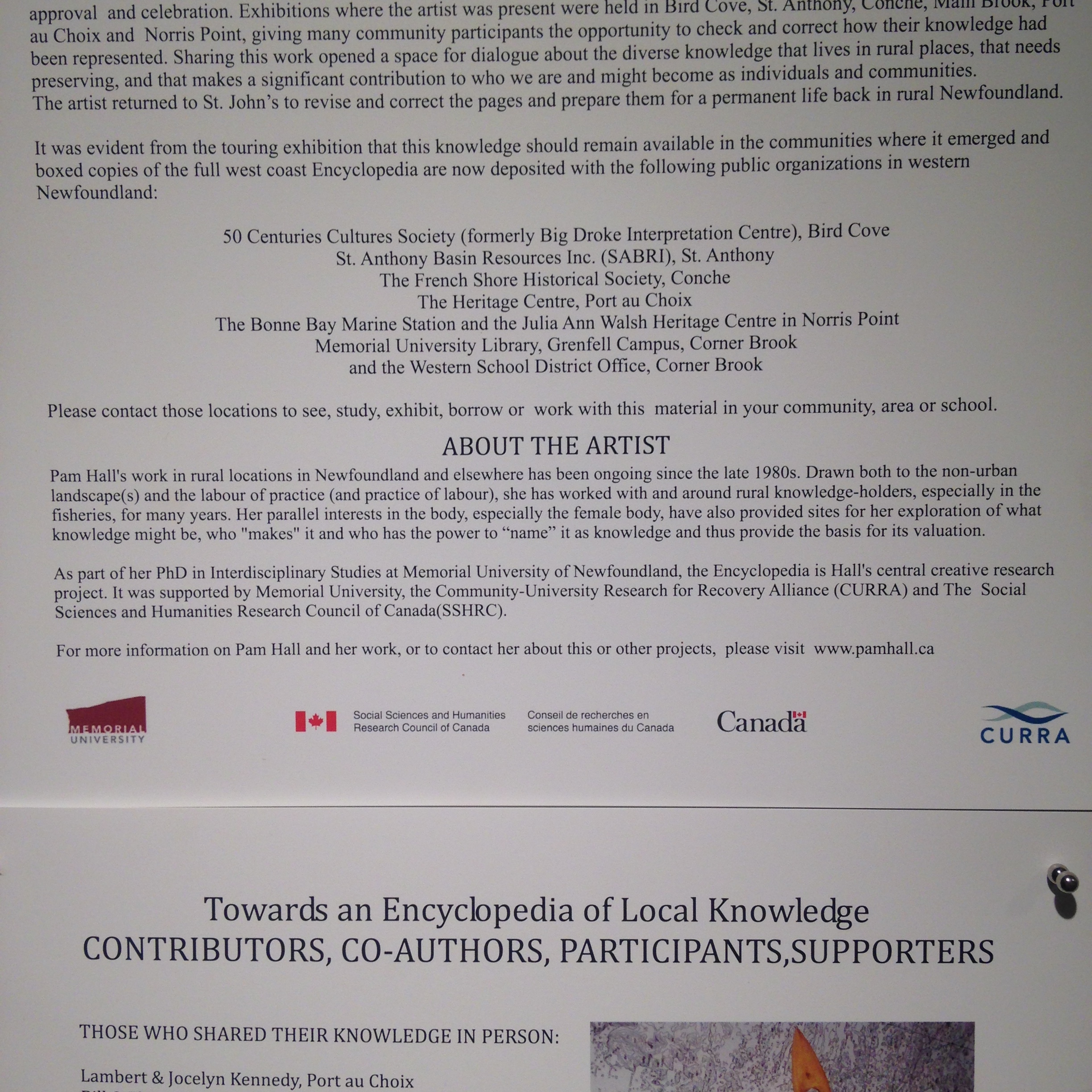
As I engage more in this work of neighbourhood-level doing, the role of local knowledge is becoming clearer to me. It seems almost cruel that at a certain scale, local knowledge is worth everything. At another, it approaches uselessness. Or maybe that is life's reminder to keep our work rooted in a place. Yet even when our knowledge is not in active use, we can still deem it valuable. I tend to believe that the world works in patterns, and only when you are deeply in touch with the smallest application of a pattern can you fully appreciate the mandala it makes at large.
This is one of the ten commandments in the church of small: start at home. Whatever problems you identify in society and whatever coping strategies you wish to see applied, try it in your own life first at the smallest level. Small solutions mean small mistakes in the trial and error process. E.F. Schumacher writes in the closing statement of his 1973 classic:
Everywhere people ask: 'What can I actually do?' The answer is as simple as it is disconcerting: we can, each of us, work to put our own inner house in order. The guidance we need for this work cannot be found in science or technology, the value of which utterly depends on the ends they serve; but it can still be found in the traditional wisdom of mankind. - Schumacher (1973), Small is Beautiful, Pg. 252
Meanwhile in incremental development...
Subsidiarity - they're the experts
In the Curbside Chat, when Chuck introduces the concept of "Chaotic but Smart," he explains something to the effect that neighbours are the best judge of how to improve their neighbourhoods. It sounds a lot like another of Schumacher's recipes for a better world, adapted from an old principle called "subsidiarity":
The higher level must not absorb the functions of the lower one, on the assumption that, being higher, it will automatically be wiser and fulfill them more efficiently. Loyalty can grow only from the smaller units to the larger (and higher) ones, not the other way round - and loyalty is an essential element in the health of any organization. - Schumacher (1973), Small is Beautiful, Pg. 205
How to be locally savvy
Alright, so we've got this idea that understanding things at the smallest level and implementing living solutions on a human scale (i.e. incremental development) is the smartest, if not the only, way to correct the industrial-level-wrongheadedness of our current situation. And the guidance for small, living solutions comes from us riffing off the deep knowledge and wisdom that gets passed around locally.
That leaves some pretty clear advice, as hard as it is to hear for the footloose. It's not only about incremental development, it's about a long term relationship with a place.
At the Small Developer Workshop in his home of Duncanville, Texas, Monte Anderson spilled the beans:
I'm going to give you the total secret to being successful as a small developer. Ready? Pick a place and stay with it for the rest of your life. Commit the rest of your life to it. I really mean this because what will happen is if you do a project that doesn't do so good, doesn't make money, you've still fixed something up, still done something, so even in a loss you gain.
Stay in one spot.
In a society where we worship travel and "worldliness," it's a hard pill to swallow. Stay in one spot. Learn it. Commit to it.
There's no denying Monte has some very wise companions on this journey. The same advice has been delivered by the elders of a 10,000 year lineage and these guys:
Our first journeys discover to us the indifference of places. At home I dream that at Naples, at Rome, I can be intoxicated with beauty, and lose my sadness. I pack my trunk, embrace my friends, embark on the sea, and at last wake up in Naples, and there beside me is the stern fact, the sad self, unrelenting, identical, that I fled from. I seek the Vatican, and the palaces. I affect to be intoxicated with sights and suggestions, but I am not intoxicated. My giant goes with me wherever I go.
But the rage of travelling is a symptom of a deeper unsoundness affecting the whole intellectual action. The intellect is vagabond, and our system of education fosters restlessness. Our minds travel when our bodies are forced to stay at home.
My personal experience has not been that traveling around the country is broadening or relaxing, or that radical changes in place and context have a salutary effect, but rather that international tourism is radically constricting, and humbling in the hardest way hostile to my fantasy of being a real individual, of living somehow outside and above it all. To be a mass tourist, for me, is to become a pure late-date American: alien, ignorant, greedy for something you cannot ever have, disappointed in a way you can never admit. It is to spoil, by way of sheer ontology, the very unspottedness you are there to experience. It is to impose yourself on places that in all noneconomic ways would be better, realer, without you. It is, in lines and gridlock and transaction after transaction, to confront a dimension of yourself that is as inescapable as it is painful:
As a tourist, you become economically significant but existentially loathsome, an insect on a dead thing.
I will wait here in the fields
to see how well the rain
brings on the grass.
In the labor of the fields
longer than a man's life
I am at home. Don't come with me.
You stay home too.
I will be standing in the woods
where the old trees
move only with the wind
and then with gravity.
In the stillness of the tree
I am at home. Don't come with me.
You stay home too.
This feels like a truth that I have been chasing my whole life, searching for a place that I can dig my feet into, where I can plant a tree and watch it grow. I made the below video at the beginning of a journey. It's heavy to sit with this advice now and wonder if all roads point in one direction. Number one priority: find my home and stay there.
All photos by Gracen Johnson.

